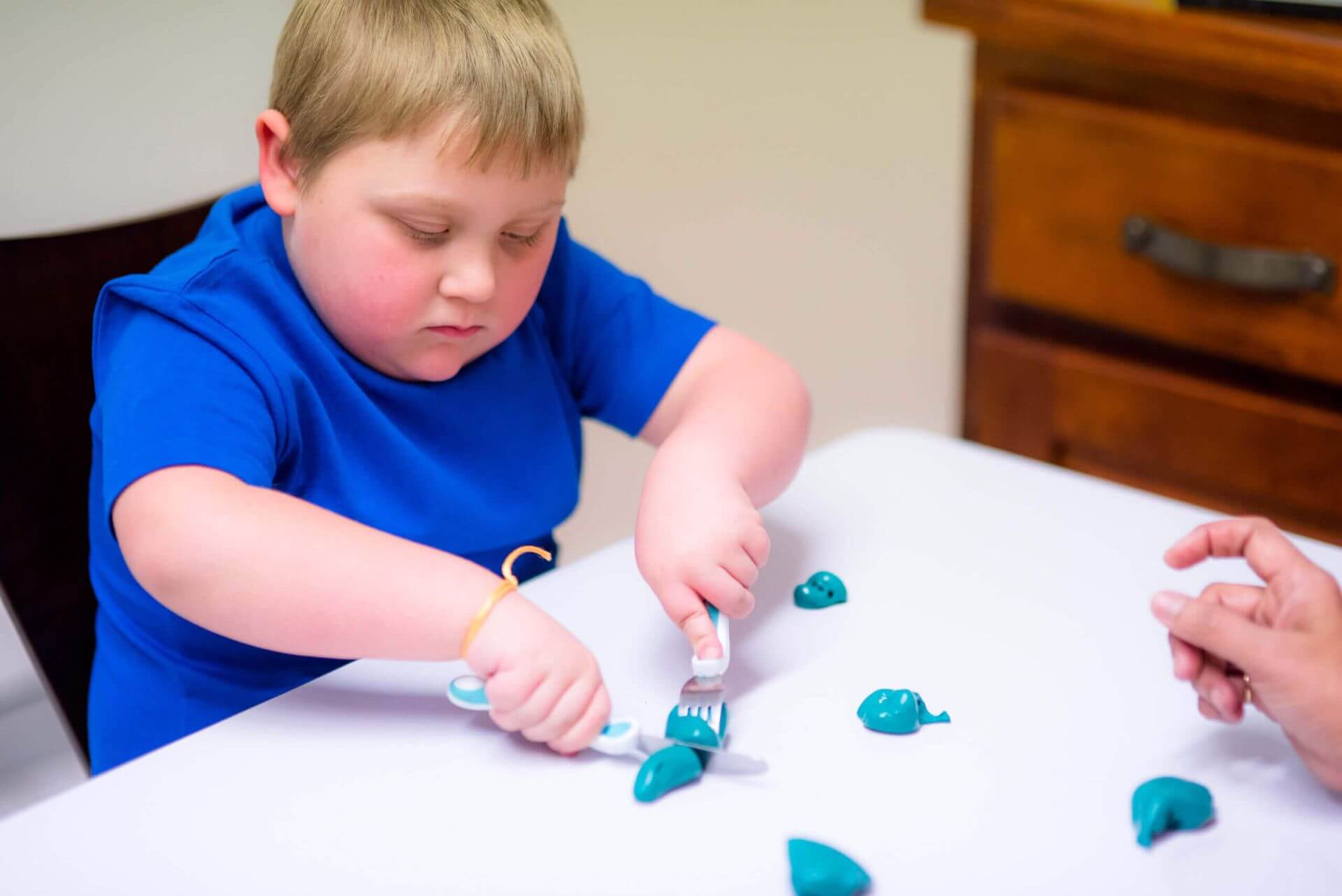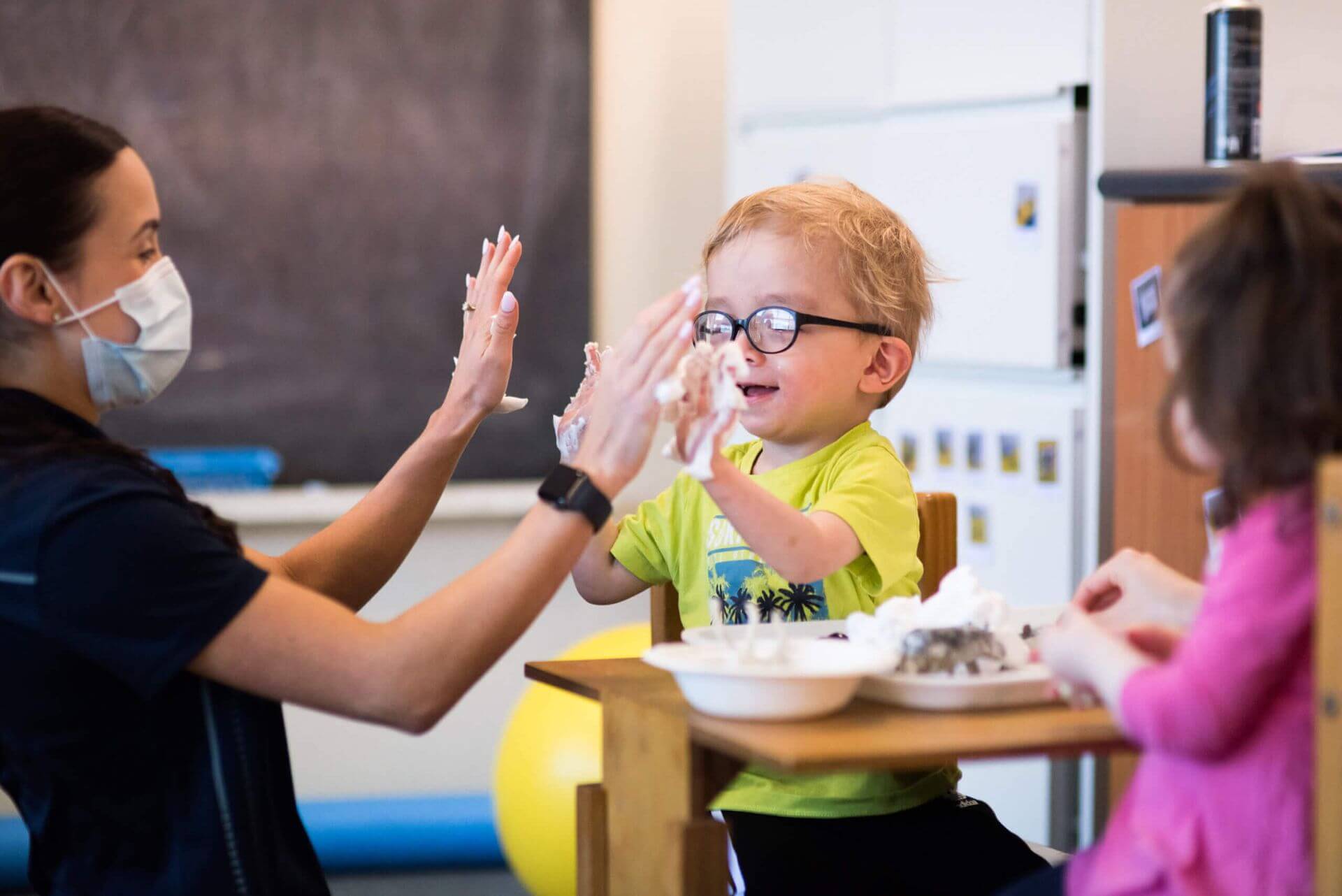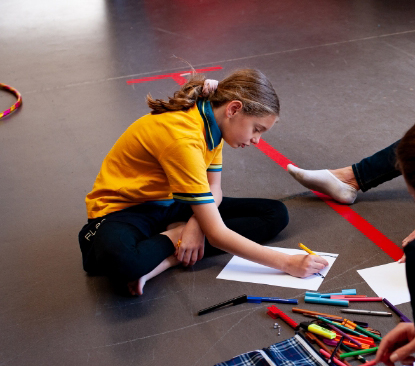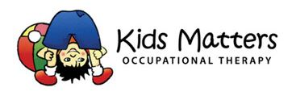Why Intensive Therapy?
Therapy is all about changing your child’s physical, mental and emotional habits. Research tells us it can take anywhere from 18 days to 8.5 months to establish new habits. Intensives fast track the process so they can overcome difficulties more quickly than with just a single weekly session. (Compare the effects of going to the gym 1x/ week compared to 3x/ week).
In intensive occupational therapy children are more quickly able to link pleasure with activities and situations they routinely struggle with, increasing motivation and willingness to use the skills they learn in therapy at home, at school and in the community.
Therapists, in the context of a warm therapeutic relationship are able to ensure correct intensive practice of specific skills. Where children are unable to practise at home regularly, intensives are recommended for best outcomes.

Who is Suitable for Intensives?
Our therapists report quicker gains with higher intensity with many different types of childhood challenges, follow the links for case studies about some of our successful intensive interventions:
This child had been attended on and off for 9 months with little progress as the home program was difficult to implement due to schedule issues and other family demands.
Challenges:
- Poor alphabet recognition
- Resistance to fine motor activities
- Fisted pencil grip
- Weak core and upper body
- Undecided hand preference
Treatment: Sensorimotor therapy, core and upper body strengthening, fine motor skills development. Letter recognition and formation practice. Parent education and training.
Frequency: 6 x 30 minute sessions over 3 weeks
Progress: By the end of the intensive, in time for commencing Prep, this child recognised most letters of the alphabet, established a hand preference and was using a more mature pencil grip. Upper body strength and endurance had improved also.
Challenges:
- Avoidant of new movement experiences – very cautious, fearful of any experiences seeming too high, fast or risky;
- Difficulty with handling steps at school;
- Difficulties with negotiating playground equipment
Treatment: Sensorimotor therapy in the clinic with parent coaching and education
Frequency: Twice a week for 3 weeks in the school holidays prior to Christmas
Progress: Immediately following the intensive, parents reported marked increase in willingness to engage in different movement experiences e.g. going on a Go Cart with Dad; being pulled behind a speed boat on an inner tube; knee boarding behind a speed boat what was managed with one try. Co-ordination was perceived by parents to be much improved overall.
This intensive burst laid the foundation for ongoing therapy, which continued on a fortnightly basis in the New Year.
Challenges:
- Slow handwriting with letter formation difficulties
- Low tone
- Gross & fine motor difficulties
- Poor pencil grasp and pencil control
Treatment: Sensorimotor therapy, fine motor skills development, muscle strengthening and letter formation practice.
Frequency: 6 x 30 minute sessions over a period of 4 weeks
Progress: This child showed significant improvements in the following ways immediately following the intensive:
- Increased ability to maintain a functional pencil grasp for longer periods of time when writing.
- Was able to form all letters of alphabet in correct formation.
- Improved pencil control
- Increased legibility
- Increased confidence with writing and willingness to write.
- Improved handwriting performance in class on teacher report.
Challenges:
- Struggled with managing many stairs at school.
- Dysregulated by movement activities.
- Struggled with motor planning new tasks.
Frequency: 2 x per week for 3 weeks
Treatment: Sensory integration, positive behavioural support, strengthening, parent education, support and training.
Progress: Started the new year being able to easily manage all the stairs at school, and was exploring a range of movement experiences with confidence, as result this child was keen and ready to start school.

How & When Intensives Run
- Attend therapy 2-3 times per week for 2-4 weeks. Your child does more in the clinic with their therapist, so you can do less at home.
- To make it more affordable for you, every week the 2nd&/or 3rd sessions are at a reduced rate.
- Sessions can be 30 or 50 minutes long according to need.
- Available by appointment.

How to apply
There are 2 pathways to book intensives:
- Existing clients: talk with your therapist with regards to their availability and together work out the intensity that is right for you and your child.
- If you are new to our clinic: you will need to come for an initial consultation to determine suitability and goals for an intensive. Please submit a new client enquiry here.
